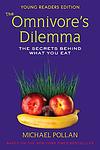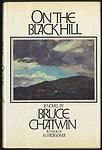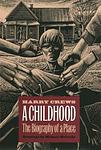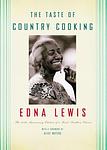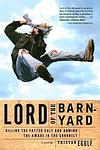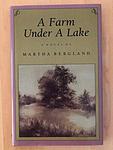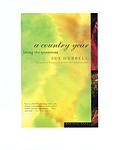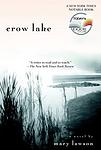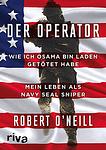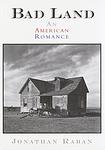The Greatest "Farm life" Books Since 1970
Click to learn how this list is calculated.
This list represents a comprehensive and trusted collection of the greatest books. Developed through a specialized algorithm, it brings together 300 'best of' book lists to form a definitive guide to the world's most acclaimed books. For those interested in how these books are chosen, additional details can be found on the rankings page.
Genres
Farm life is a genre of books that focuses on the daily life, challenges, and joys of living and working on a farm. These books often explore the unique experiences of farmers, their relationships with the land and animals, and the impact of agriculture on local communities. From memoirs and biographies to fiction and non-fiction, farm life books offer readers a glimpse into the world of farming and the values and traditions that shape it.
Countries
Date Range
Reading Statistics
Click the button below to see how many of these books you've read!
Download
If you're interested in downloading this list as a CSV file for use in a spreadsheet application, you can easily do so by clicking the button below. Please note that to ensure a manageable file size and faster download, the CSV will include details for only the first 500 books.
Download-
1. A Thousand Acres by Jane Smiley
This novel is a modern retelling of Shakespeare's King Lear, set on a 1000-acre farm in Iowa. The story revolves around three daughters whose father decides to divide his land among them. The eldest two daughters are compliant with their father's decision, but the youngest daughter objects, leading to familial discord. The novel delves into themes of power, jealousy, and the dark secrets that can tear a family apart.
-
2. The Omnivore's Dilemma by Michael Pollan
The book delves into the question of what we should have for dinner. It explores the paradox of the omnivore's dilemma, detailing the food chains that link farm to table, and explaining how the industrial revolution has changed the way we eat. The book also discusses the implications of our modern diet on our health and the environment, suggesting that we should return to more traditional methods of food production and consumption. It advocates for a more conscious and sustainable approach to eating.
-
3. On the Black Hill by Bruce Chatwin
"On the Black Hill" is a novel that explores the lives of twin brothers, Lewis and Benjamin, who live on a farm on the English-Welsh border. The book spans 80 years of their lives, from the late 19th century to the 1960s, and examines the changes that occur in their rural world during this time. Despite the outside world's transformation, the brothers' lives remain largely unchanged, demonstrating the enduring nature of their close relationship and their connection to the land.
-
4. The Horse Whisperer by Nicholas Evans
A devastating horse riding accident leaves a young girl, Grace, and her horse, Pilgrim, physically and emotionally traumatized. In a desperate attempt to heal them both, Grace's mother seeks out a man with a unique gift for communicating with horses. As he works to heal Pilgrim, the horse whisperer also helps Grace and her mother confront their own pain and begin to rebuild their shattered lives.
-
5. A Childhood: The Biography of a Place by Harry Crews
This book is a memoir of the author's early years in Bacon County, Georgia, during the Great Depression. It details his life in a poverty-stricken, rural community, exploring themes of hardship, resilience, and the human spirit. Despite the harsh circumstances, the author also recounts moments of joy and beauty, offering a vivid and compelling portrait of his childhood and the place that shaped him.
-
6. The Solace of Open Spaces by Gretel Ehrlich
This book is a collection of essays that explore the author's experiences and observations after moving from the city to the rural landscapes of Wyoming. The narrative delves into the harsh and beautiful realities of living in the American West, the author's personal healing after a tragic loss, and the solace found in the vast open spaces. The book is a profound meditation on nature, solitude, grief, resilience, and the transformative power of landscape.
-
7. In the Heart of the Country by J M Coetzee
Set in South Africa, this novel tells the story of a woman living on a remote farm who is isolated not only geographically but also emotionally and psychologically. After her father marries his young mistress, the protagonist's life spirals into madness and tragedy. The narrative explores themes of loneliness, power dynamics, and the harsh realities of life in apartheid-era South Africa, all presented through the protagonist's fragmented and unreliable perspective.
-
8. Out Stealing Horses by Per Petterson
The novel is a poignant exploration of a man's relationship with his father and his own identity. Set in Norway, it follows the protagonist's decision to live in solitude after the death of his wife and sister. Through a series of flashbacks, he recalls his childhood, particularly the summer of 1948 when he lived with his father in the country. As he delves into his past, he uncovers his father's involvement in the resistance during World War II and the lasting impact it had on their relationship and his own life. The narrative intertwines the past and the present, reflecting on themes of loss, betrayal, and the complexity of human relationships.
-
9. The Taste Of Country Cooking by Edna Lewis
This book is an evocative tribute to the author's childhood in a small farming community in Virginia, where seasonal and local foods were an integral part of the cultural experience. It intertwines personal recollections with recipes that capture the essence of Southern cuisine, emphasizing the rhythm of nature, the importance of community, and the pleasures of sharing good food. The narrative is as much a memoir as it is a cookbook, offering a window into a way of life that cherishes culinary traditions, the land, and the changing seasons, with dishes that range from simple to celebratory, all rooted in the heritage of American cooking.
-
10. The Third Life Of Grange Copeland by Alice Walker
This novel explores the harrowing journey of an African American man in the rural South, who, after years of enduring economic hardship and the oppressive racial dynamics of the mid-20th century, abandons his family in search of a better life. The narrative delves into the consequences of his actions, particularly on his wife and son, and examines the cycle of violence, poverty, and despair that plagues his community. As he returns home years later, seeking redemption and a third chance at life, the story poignantly addresses themes of resilience, the impact of systemic racism, and the possibility of personal transformation amidst seemingly insurmountable challenges.
-
11. Lord Of The Barnyard by Tristan Egolf
The book is a darkly comedic and sprawling tale of a rural American outcast, whose life is marked by relentless misfortune and societal marginalization. The protagonist, with an extraordinary talent for animal husbandry, finds himself in constant conflict with the small-minded townsfolk and corrupt officials of his Midwestern community. His journey is one of epic struggle against adversity and the pettiness of small-town politics, culminating in a dramatic and chaotic rebellion that upends the social order of his world. The narrative weaves a rich tapestry of rural life, exploring themes of revenge, social injustice, and the quest for personal redemption.
-
12. Close Range: Wyoming Stories by Annie Proulx
"Close Range: Wyoming Stories" is a collection of short stories that depict the harsh, rugged life in Wyoming. The book portrays the lives of various characters, from ranchers to rodeo cowboys, who are struggling with poverty, loneliness, and the harsh physical environment. The stories are characterized by a strong sense of place, dark humor, and vivid descriptions of the western landscape. The characters' struggles with their harsh environment and personal demons create a poignant and often tragic portrait of life in the American West.
-
13. Harvest by Jim Crace
Set in a remote English village over a seven-day period, "Harvest" tells the story of a community on the brink of inevitable change. The village's way of life is threatened when three outsiders set up camp on the outskirts, and a fire at the manor house leads to suspicion and blame. As the villagers grapple with the intrusion and the resulting chaos, the imminent enclosure of the common land looms, signaling the end of the agrarian lifestyle they've always known.
-
14. A Farm Under A Lake by Martha Bergland
The novel explores the inner life and memories of a Midwestern woman named Janet, who is caught between her present life as a wife and mother and her past experiences growing up on a farm. On a fishing trip with a friend, Janet reflects on her youth, her relationships with men, and the complexities of her sexual awakening in a rural setting. The narrative weaves through time, revealing the quiet tensions and personal struggles that lie beneath the surface of her seemingly ordinary life, painting a poignant and introspective portrait of a woman's journey through the landscapes of her past and the emotional terrain of her inner world.
-
15. A Country Year by Sue Hubbell
"A Country Year" is a reflective memoir that captures the author's experiences living alone on a remote Ozarks farm after her divorce. Over the course of a year, she intimately describes the rhythms and changes of the natural world around her, from the behavior of bees (which she keeps for a living) to the patterns of the changing seasons. The book is a blend of personal narrative, nature writing, and philosophical musings, offering insights into the challenges and rewards of rural solitude, the intricate beauty of the environment, and the resilience required to maintain a self-sufficient lifestyle. Through keen observations and lyrical prose, the author invites readers to share in the quiet joys and profound observations gleaned from a life closely attuned to nature.
-
16. Windbreak by Linda M. Hasselstrom
"Windbreak" is a reflective and poignant memoir that delves into the daily life and challenges of a woman managing a cattle ranch in the American West. Through a series of journal entries, the author provides an intimate glimpse into the rhythms of rural life, the connection to the land, and the resilience required to sustain both the environment and the spirit in the face of adversity. The narrative weaves together themes of solitude, the changing seasons, and the intricate balance between human activity and nature, offering readers a profound meditation on the complexities of agricultural life and the enduring strength of a woman's dedication to her land and livelihood.
-
17. Real Farm by Patricia Tichenor Westfall
"Real Farm" is a poignant memoir that delves into the author's personal journey growing up on a mid-20th-century American farm. The narrative captures the essence of rural life, with its close-knit family dynamics, the hard work and challenges of farm living, and the deep connection to the land. Through vivid storytelling, the book reflects on the transformation of agricultural practices, the impact of modernization, and the loss of traditional farming ways, all while celebrating the resilience and spirit of the farming community. The memoir serves as a tribute to a bygone era and a reflection on the universal themes of change, nostalgia, and the enduring value of heritage.
-
18. River Time by Janet Lembke
"River Time" is a lyrical exploration of the author's intimate connection with the natural world, particularly the rivers and waterways of the American South. Through a series of evocative essays, the narrative weaves personal anecdotes, historical reflections, and keen observations of the flora and fauna that inhabit these aquatic ecosystems. The author's prose invites readers to contemplate the complex relationships between humans and nature, the passage of time, and the importance of preserving these vital, yet vulnerable, environments. The book serves as both a meditation on the transformative power of rivers and a call to recognize and respect the rhythms of the natural world.
-
19. All But The Waltz by Mary Clearman Blew
"All But The Waltz" is a poignant memoir that weaves together personal narrative and the history of the American West. Through a series of essays, the author reflects on her family's past and the hardships they endured, including loss, isolation, and the struggle to maintain a ranch in the harsh Montana landscape. The book delves into themes of memory, identity, and the changing face of the West, as the author grapples with her own place in a lineage of strong but troubled ancestors. It is a meditation on the complexities of family legacy and the bittersweet dance of embracing one's heritage while stepping into the future.
-
20. Crow Lake by Mary Lawson
"Crow Lake" is a compelling novel that explores the dynamics of a rural Canadian family dealing with tragedy. After the death of their parents, the Morrison children struggle to stay together and maintain their family farm. The story is narrated by the youngest daughter, who is now a successful zoologist, reflecting back on her childhood. The narrative delves into themes of love, loss, survival, and the power of education, all set against the backdrop of the harsh, yet beautiful, northern Ontario landscape.
-
21. Der Laden by Erwin Strittmatter
The book is a richly detailed, autobiographical trilogy that paints a vivid portrait of village life in Germany through the first half of the 20th century. It follows the life of Esau Matt, a baker's son, as he grows up during the tumultuous times of the Weimar Republic, the rise of National Socialism, and the Second World War. The narrative delves into the everyday experiences of the villagers, their struggles, and their resilience, capturing the social and political changes of the era through the lens of a small community and the coming-of-age story of its protagonist.
-
22. Plainsong by Kent Haruf
This novel is set in the small town of Holt, Colorado, and explores the intertwining lives of its residents. The narrative focuses on a high school teacher raising two sons after his wife leaves him, a pair of bachelor brothers who have lived together on their family farm for decades, and a pregnant teenager kicked out of her home. The characters' lives intersect in unexpected ways, offering a poignant exploration of community, resilience, and the human capacity for connection and kindness.
-
23. Moo by Jane Smiley
This novel is a satirical take on academic life, set in a Midwestern agricultural university known as "Moo U." The story weaves together the lives of faculty, students, and university staff, exploring their ambitions, failures, and eccentricities. Central to the narrative is the university's financial struggles and the various schemes proposed to address them, including the secret project involving a hog named Earl Butz. Through a rich tapestry of characters and their interconnected stories, the book humorously critiques the complexities and absurdities of university life, the politics of academia, and the changing landscape of American agriculture.
-
24. Bad Land: An American Romance by Jonathan Raban
This book is a historical exploration of the American West, specifically the region of Eastern Montana. The author delves into the experiences of the British and Scandinavian settlers who were lured to this area in the early 20th century by railroad advertisements promising fertile farmland. Through a combination of historical research, personal narratives, and travelogue-style observations, the author paints a vivid picture of the harsh realities these settlers faced, including drought, isolation, and economic hardship. The book also reflects on the lasting impact of these experiences on the region's culture and identity.
-
25. The Dogs of March by Ernest Hebert
The book follows the story of a man named Howard Elman who is struggling to make ends meet in a small town in New Hampshire. After his wife leaves him and he loses his job, Howard is forced to confront the harsh realities of his life. As he grapples with poverty, isolation, and his own personal demons, Howard must also contend with the changing landscape of his town as it is overtaken by urban development. The novel paints a vivid picture of rural life and the struggles of the working class, touching on themes of resilience, survival, and the human condition.
Reading Statistics
Click the button below to see how many of these books you've read!
Download
If you're interested in downloading this list as a CSV file for use in a spreadsheet application, you can easily do so by clicking the button below. Please note that to ensure a manageable file size and faster download, the CSV will include details for only the first 500 books.
Download
